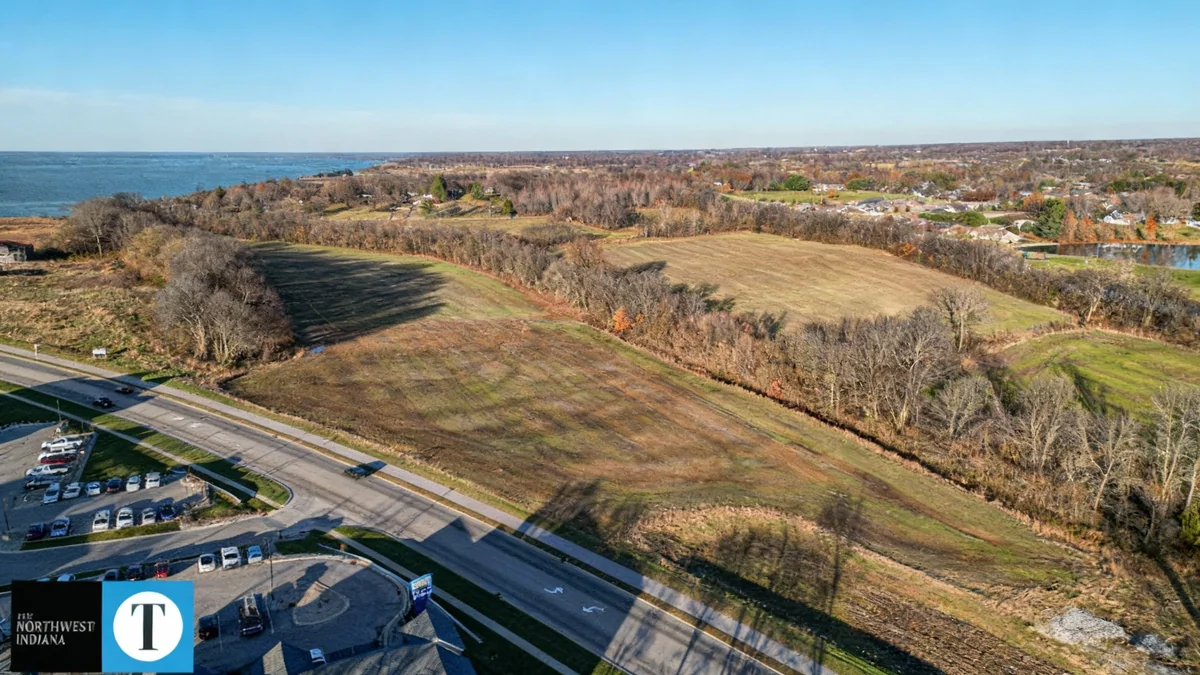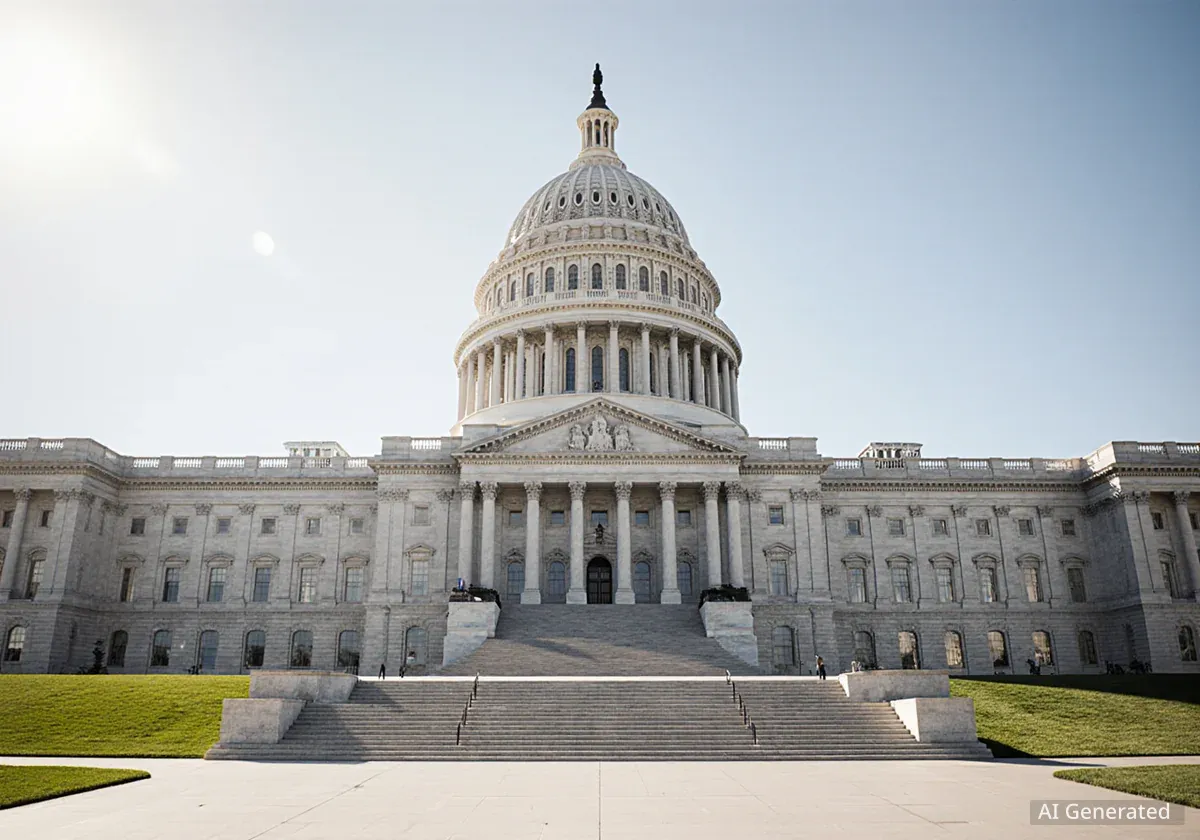A recent multi-million dollar land purchase by the City of Owensboro has ignited a debate among its leaders, highlighting a fundamental disagreement over the pace and price of the city's strategy to acquire property for future growth. The decision to buy nearly 35 acres for approximately $3.5 million passed with a narrow 3-2 vote, revealing a split on how aggressively the city should pursue control over its own development.
Proponents, including City Manager Nate Pagan, argue the acquisitions are strategic investments necessary to attract new businesses, remove blighted properties, and guide economic development. However, some officials, including Mayor Tom Watson and Commissioner Jeff Sanford, have raised concerns about the financial risks and the speed of the recent purchases, questioning if the city is moving too fast.
Key Takeaways
- The Owensboro City Commission approved a $3.5 million purchase of 35 acres in a 3-2 vote, sparking debate.
- City leadership is divided on the strategy of buying land to control economic development.
- Supporters view the purchases as necessary long-term investments to attract jobs and remove blight.
- Critics express concern over the timing, cost, and potential for financial overextension.
- Several high-profile properties have been acquired recently, including an industrial site and a downtown riverfront parcel.
A Strategy of Control
At the heart of the city's approach is a concept City Manager Nate Pagan describes as "taking down land." This involves the municipal government purchasing key parcels to prepare them for private development, a practice he says is common for economic growth.
"You have to have some measure of control in order to market it for economic development," Pagan explained. He noted that state law provides cities significant flexibility when using land to recruit investment. This strategy is driven by a directive from the City Commission itself. "They have asked us to be aggressive when it comes to economic development," Pagan stated. "We talk and work on that constantly."
This approach is executed in partnership with the Greater Owensboro Economic Development Corporation (GOEDC), which identifies and vets potential sites. According to Pagan, the GOEDC acts as the city's "marketing arm" but lacks the capital to acquire property. Therefore, the city steps in to secure the land, with every purchase requiring a public vote by the Board of Commissioners.
Commissioner Bob Glenn supports this proactive stance, emphasizing that the goal is not for the city to become a land speculator. "We’re not here to invest in land in and of itself," Glenn said. "We do it for purposes of economic development."
Concerns Over Pace and Price
The latest purchase, a 35-acre tract between Fairview Drive and Pleasant Valley Road for $100,000 per acre, proved to be a tipping point for some officials. Mayor Tom Watson and Commissioner Jeff Sanford voted against the deal, citing its high cost and the rapid succession of recent acquisitions.
"I think we’ve bought a lot lately," Sanford commented, expressing a desire to slow down. "I want to concentrate on what we have… I was ready to stop." He also pointed to the downstream costs of expansion, noting that as the city grows, so does the demand on services like police, fire, and public works. "You’re walking a tightrope," Sanford added.
A Balancing Act for Growth
Municipal land acquisition is a common tool for urban planning, but it carries inherent risks. Cities often buy property to assemble larger, more attractive parcels for developers, remove dilapidated structures, or ensure development aligns with a long-term vision. The challenge lies in balancing the upfront public cost against the potential future tax revenue and economic benefits, a calculation that is now at the center of the debate in Owensboro.
Even commissioners who voted in favor of the recent purchase acknowledged the need for caution. "I don’t want to be buying property just to be buying property," said Commissioner Curtis Maglinger. He stressed that each acquisition must serve a clear purpose for community growth.
Commissioner Sharon NeSmith defended the process, stating that each deal is carefully reviewed. "We don’t want to buy a piece of property just to buy it and say we own it," she said. "The purpose is, what’s the value and what is the long-term impact of it?"
A Portfolio of Strategic Properties
The Fairview Drive property is just one of several significant real estate deals the City of Owensboro has recently undertaken. Each serves a different strategic purpose, from industrial recruitment to affordable housing.
Former Day Treatment Campus on KY 54
The city acquired a long-vacant state property for $3.3 million and immediately resold it to a private developer for the same price. The deal came with a requirement that the derelict buildings be demolished. Officials said the move resolved a major safety issue at "no net cost to the City."
Massie Property Industrial Site
To address a shortage of industrial land, the city and GOEDC purchased 121 acres on the west side. The land was acquired for $38,500 per acre, a price below its appraised value. The goal is to create a new industrial park to attract manufacturers and high-wage jobs, replacing the nearly full AirPark.
Colonel House Motel
In an effort to tackle blight and a housing shortage, the city bought the troubled Colonel House Motel on Triplett Street. The plan is to issue a request for proposals for a developer to either renovate or rebuild the property into affordable rental units.
"This could involve renovation of the existing structure or a complete rebuild, but the ultimate goal is affordable housing." - Nate Pagan, City Manager
Downtown Veterans Boulevard Site
The city also moved to acquire key parcels across from Smothers Park from Jagoe Homes for $4.2 million. This purchase consolidates a prime riverfront location, clearing the way for a future signature development project.
The Path Forward
Despite the recent division, city leaders appear united on the ultimate goal: using real estate as a tool to foster a stronger, more prosperous Owensboro. The disagreement is centered on the tactics—how much to spend, how quickly to move, and how much risk to assume.
Mayor Watson, while initially opposed to some deals, has since softened his stance, acknowledging that the city is "land poor" and must sometimes act when opportunities arise. He also affirmed his confidence in the city manager's integrity. "He’s maybe the most pragmatic person I’ve ever met," Watson said.
By The Numbers: Recent City Acquisitions
- $4.2 million: Downtown Veterans Boulevard site for a future signature project.
- $3.5 million: 35-acre commercial tract on Pleasant Valley Road ($100,000 per acre).
- $3.3 million: Former day treatment campus on KY 54, immediately resold to a developer.
- 121 acres: Massie Property industrial site purchased at $38,500 per acre.
Commissioner Sanford remains cautious, stating he would have been more comfortable with the latest purchase if a specific developer was already lined up. "If I knew that XYZ was coming there for sure… I would have probably been for that," he said.
However, Commissioner Glenn is confident the investment will pay off quickly. Speaking about the controversial Fairview/Pleasant Valley tract, he predicted a swift turnaround. "I would be shocked if that property doesn’t turn over within the next 24 months," he stated.
As Owensboro positions itself for the future, the debate continues. The city's leadership must now navigate the fine line between bold, strategic investment and prudent fiscal management, with the outcome shaping the community's economic landscape for years to come.





